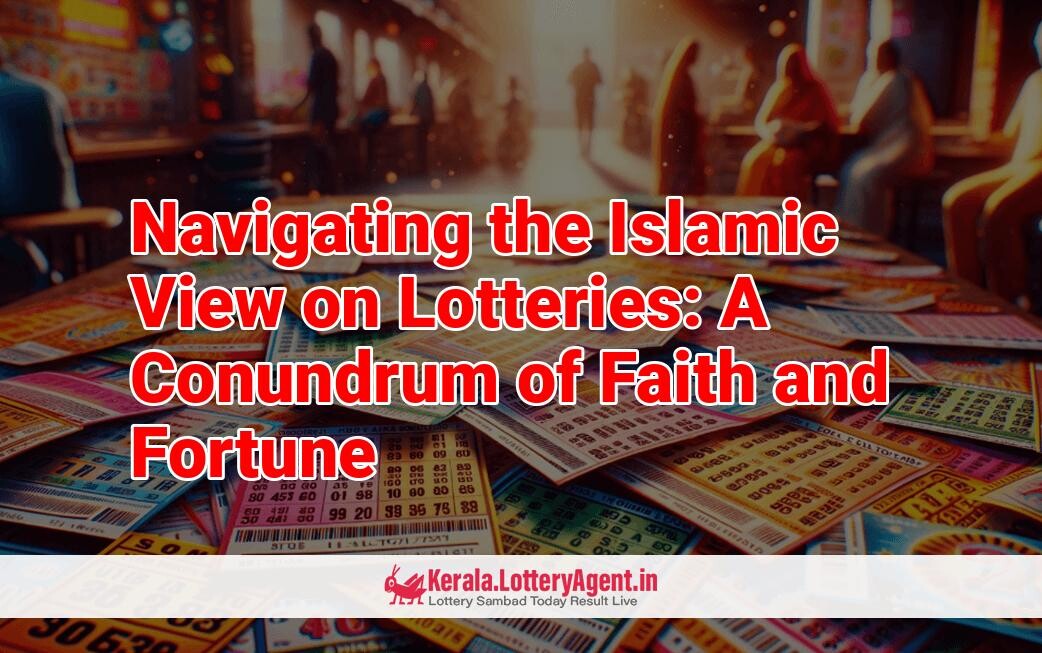
The subject of lotteries within the Muslim community is a contentious one. A deep divide exists between those who deem such games to be haram — strictly forbidden by Islamic tenets — and others who argue that the nature of lotteries, due to their potential benefits, renders them halal, or permissible. This difference in perspective hinges on the fundamental question of whether lotteries are a form of gambling, which is clearly prohibited in Islam due to its addictive nature and potential for harm.
Our comprehensive exploration into the subject has involved consulting a broad range of resources in order to deliver an informative piece on the implications surrounding the purchase and sale of lottery tickets, as well as the relevant fatwas (religious rulings). For those eager to comprehend this religious dilemma more deeply, a closer look into both sides of the argument may prove enlightening.
At the heart of the discussion lies the gambling element of the lottery. The Quran, while not expressly referencing lotteries, provides moral and ethical guidance that can be applied to this modern predicament. It acknowledges that although gambling may present certain advantages, its detrimental effects far overshadow any potential gains. In the light of these teachings, many Muslims are firmly against participating in lotteries.
Conversely, there are Muslims who interpret the Quran differently, suggesting that as long as lottery proceedings are utilized for charitable endeavors — such as funding educational initiatives — playing the lottery could align with Islamic principles. Such an approach transforms what might be seen as a sinful act, into an act of charity, potentially placing it within the realm of halal activities.
When considering the more benign form of receiving a free lottery ticket, possibly as a reward for a purchase or as part of a promotion, opinions within the Muslim community further diverge. Some argue that accepting a lottery ticket without directly exchanging money for it may be halal, as no gambling has occurred on the part of the receiver. However, nuances exist — if receiving the ticket is conditioned upon prior expenditure, effectively including its cost in the budgeted price of the product, it may still be considered haram due to the indirect financial risk involved.
Beyond being a participant, the quandary extends to merchants, particularly those in countries such as the United States, where the sale of lottery tickets is commonplace. Rulings such as those from SeekersGuidance categorically state that the sale of lottery tickets is not permissible, equating it to aiding in sin. Nevertheless, the presence of Muslim-owned stores selling lottery tickets indicates the presence of varying viewpoints on the matter.
The reality of potential wealth from lottery winnings presents another layer of complexity. Should a Muslim find themselves in possession of such gains, investment in halal ventures and charitable giving are ways to utilize the windfall in alignment with Islamic values. One might argue that by participating in the lottery, and even by donating winnings directly to a charity, one inadvertently supports these good causes. Yet again, others contend that charity should be a direct act, not contingent upon participation in a potentially sinful activity.
An intriguing scenario arises when a Muslim organization faces the decision of accepting lottery grants, funds specifically earmarked for community welfare. As these funds are not a direct result of gambling by the recipient, the ethical concerns become less clear-cut. The debate then shifts to whether the acceptance of such funds indirectly condones the initial act of gambling which generated them.
The article ultimately circles back to the personal conviction of the Muslim individual. Whether one views the lottery as a harmless form of entertainment or as an unacceptable gamble, hinges largely upon one’s individual interpretation of Islamic teachings. This piece lays out the contrasting views and underlying principles in the hope of providing clarity, but the resolution of this dilemma remains, for many, an ongoing journey of faith.











